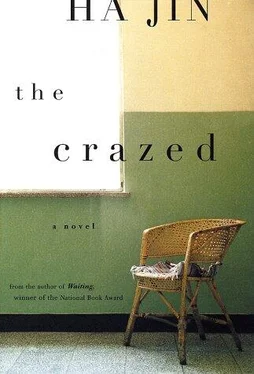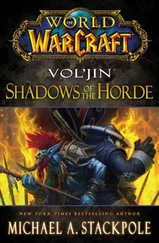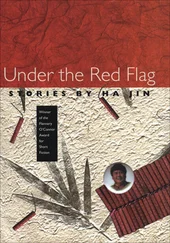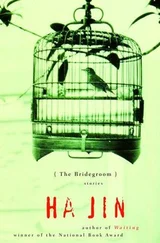“The essence of Western culture is the self, whereas the essence of the Chinese culture is the community. But poetry in both cultures has a similar function, that is, to express and preserve the self, though it attains this goal through different ways. In Chinese culture, poetry liberates and sustains the self despite the fact that the self is constantly under the overwhelming pressure of the community. Thus Chinese poets tend to speak as themselves, too earnest to worry about having a characterized voice to conceal their own — they desperately need the genuine self-expression in poetic articulation. In other words, the self is liberated in poetic speech, which is essentially cathartic to the Chinese poet. On the contrary, in Western culture poetry tends to shield and enrich the self, which on the one hand is threatened by other human beings and on the other hand has to communicate with others. Therefore, the persona becomes indispensable if Western poets intend to communicate and commiserate with others without exposing themselves vulnerably. In this sense, the persona as a poetic device functions to multiply the self.”
He fell into silence, as if purposely leaving some time for his words to sink in and for his students to take notes. I was impressed by his thesis, which I felt might be original. But his view was too sweeping and still crude: it would have to be substantiated and thoroughly examined before it could be shared with others. Besides, there were holes in his argument. He ought to have taken into account the Romantics in the West, such as Byron and Keats, who seldom use a persona in their lyric poems. Even Dante often speaks as himself in The Divine Comedy. Furthermore, the notion that the concern for the self differentiated Western culture from Chinese culture sounded arbitrary and rather simplistic. For instance, Christianity — the core of Western civilization — cares about God more than about the individual. Perhaps Mr. Yang should focus on the poetry written in one Western language instead of the whole body of Western poetry, which was too colossal for him to tackle.
“Do you know I write poetry too? I have always been a poet at the bottom of my soul.” He didn’t mention my name, but his intimate tone of voice indicated he was talking to me.
“No. You never told me that,” I said.
“You want to listen to one of my poems?”
Before I could answer, he closed the book and began chanting solemnly:
In late August the autumn wind howls
Peeling my roof of three-layered straw.
The straw flies across the brook,
Hanging on the top of the woods
And tumbling into gullies and ponds.
The children from South Village
Bully me for my old age,
Daring to be thieves before my eyes:
They take away my straw and vanish
Into the bamboo grove.
Lips cracked and tongue dried
I can no longer cry. And coming back,
I keep sighing over my cane.
He paused and raised his head, his eyes flashing. “What do you think of that?” he asked me proudly. “A powerful beginning, isn’t it?”
“Yes.” I forced myself to agree. Anyone could tell that those lines were the beginning of Tu Fu’s “Song of My Straw Hut Shattered by the Autumn Wind.” How could Mr. Yang believe he had written the poem himself? Yet the earnest look on his face showed that he didn’t doubt his authorship at all. I remained quiet. Whoever he fancied himself to be was fine with me, as long as he didn’t throw a fit.
“See how simple these lines are. It’s the simplicity that stirs the soul. Comrades, bear in mind that the traditional poetic theory believes there’s an inverse relationship between ideas and emotions. If an idea in a poem is too complicated and too arcane, the poem begins to lose its emotional power. Conversely, if the poem is too emotional, its intelligence will diminish. A good poet intuitively knows how to strike a balance between thoughts and emotions. When I read this poem for the first time, I wondered to myself, ‘My goodness, how could he write these lines? They are as sturdy and supple as green branches.’ ”
Now he seemed to have dropped his conviction that he himself was the author. Somehow he couldn’t affix his mind to an idea for long; his thoughts rambled too much. I wondered whether there was a way to make his mind more focused and more coherent. Perhaps he should be treated by a psychiatrist; acupuncture or acupressure might help him too.
“Listen carefully,” he demanded, as if he knew I was wool-gathering — thinking about his brain instead of his views. He went on reciting huskily:
Then the wind subsides, murky clouds
Thickening while the sky turns misty and dark.
Our quilts, ragged for years,
Are hard as iron. Full of cracks
They can’t keep my kids warm in their sleep.
Again I fear that rain will fall in
Through the leaky roof, swaying like
Endless hempen threads and soaking our beds.
Ever since the war I’ve seldom slept.
How hard it is to pass such long dank nights!
He paused for breath, then commented, “I wrote these lines when I was ‘reeducated’ in the countryside. During the day we pulled plows in the fields like beasts of burden, or hoed soybean seedlings, or planted rice shoots, or cleaned latrines and pig-sties, or shipped manure to the fields. Although the work was backbreaking, it was not as nerve-racking as at night, because the hard labor could numb and vacate my mind. I could hardly think of anything while my body was busy. Once I started working, I just went on like a machine. Besides, when the work was heavy and urgent, we were often given better food, not as in the regular time when we had to eat sweet-potato strips and bran buns — both were indigestible and gave me heartburn and stomachaches. When we gathered in crops or loaded sun-dried bricks into the kiln or carried them out of it after they had been fired, we could eat as many corn buns as we wanted, and sometimes there were even slivers of pork belly in the vegetables. We were also given mung bean soup, which we could drink to our fill. But it was horrible at night. I suffered from insomnia. So many things came to mind that I couldn’t stop thinking about them. Once I didn’t sleep for thirteen days in a row. I begged the farm’s doctor to prescribe some soporific for me, but the leaders wouldn’t let him give me any, saying, ‘We ought to save the sleeping pills for the revolutionary masses. You can’t sleep because you haven’t worked hard enough.’ In the daytime I walked in the fields as if treading the clouds. My eyes ached and my head swelled with a shooting migraine. I was frightened that I was going to lose my mind, but the more fearful I was, the more sleepless the night became. I hated all the men around me for being able to sleep at night and get up refreshed the next morning. How often I envied the pigs in the sties behind our house, because they just ate and slept until one day they were hauled out to the butcher’s.”
He swallowed, then resumed: “The roof of our room was full of holes, through which night after night I listened to the wind whistle and watched the moon and the clouds move by slowly. In spite of my wakefulness, I dared not make any noise. If by chance my movement in bed woke somebody, he would curse me relentlessly and wake others up. Then all the people in the room would heap abuse on me. On the one hand, I wished the night would end sooner so that I could stop thinking; on the other, I wished daylight would never arrive so that I could stay in bed longer and rest my body more. In that state of mind I composed these lines.” He patted Brecht’s play in his lap and continued, “Genuine poetry originates from the author’s personal experience. It’s something that overflows from the soul.”
Читать дальше

![Lao Zi - Dao De Jing [Tao Te Ching] (english)](/books/3890/lao-zi-dao-de-jing-tao-te-ching-english-thumb.webp)
![Lao Zi - Dao De Jing [Tao Te Ching] (chinese)](/books/3891/lao-zi-dao-de-jing-tao-te-ching-chinese-thumb.webp)
![Lao Zi - Dao De Jing [Tao Te Ching] (espanol)](/books/3892/lao-zi-dao-de-jing-tao-te-ching-espanol-thumb.webp)







